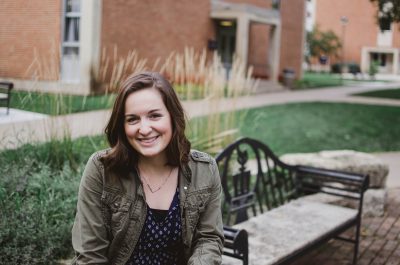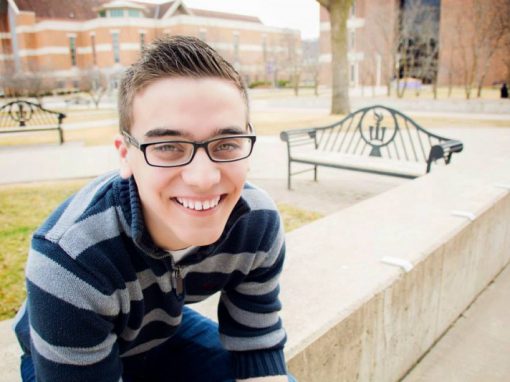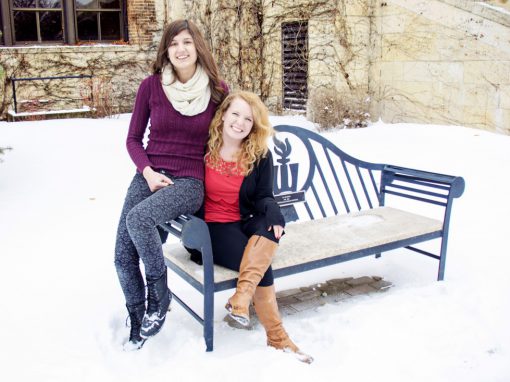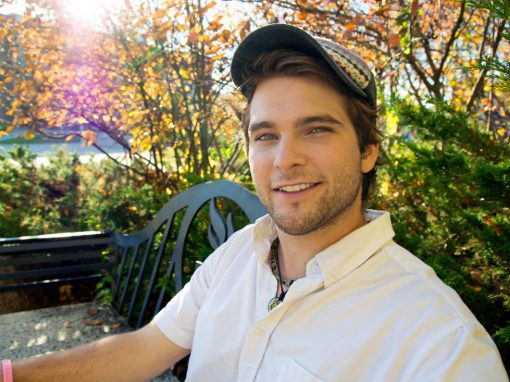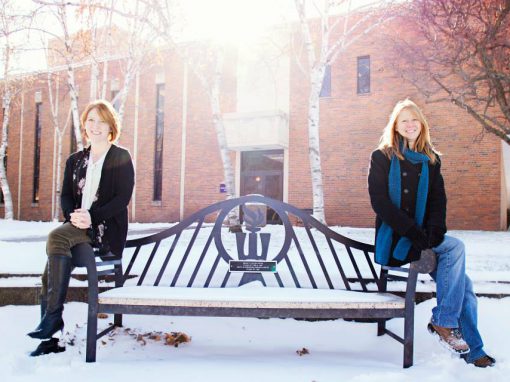
Gary Kastello | Helping Survivors Heal
Faculty member from La Crescent, MN
Health Exercise & Rehabilitative Science Professor at WSU for 18 years
Director of Winona Survivors Unite In Exercise program
“All people are similar – we’re social beings, we want to communicate, we want to enjoy each other – and it becomes heightened with cancer survivors because their lives have been threatened and they tend to think a little differently about each and every day.”
When HERS student Ashley Rundel came to him with the idea for the Winona Survivors Unite in Exercise Program, Professor Gary Kastello supported it on an intellectual level, but since his own cancer diagnosis the project has become much more personal.
In our interview, he metaphorically referred to the WSUE as his “baby” and, like a real child, the program has kept growing over the years from 5 students and survivors in 2011 to nearly 20 students and survivors in each program session today. Gary has been there every step of the way, and it was clear to me that he couldn’t be prouder of his students and the participating cancer survivors if they were his own flesh and blood.
If you are a cancer survivor and would like to get involved with the Winona Survivors Unite in Exercise Program, contact Gary Kastello at GKastello@winona.edu or 507.457.5219.
What is your role in the Winona Survivors Unite in Exercise program?
I am the director of the WSUE program and as such I meet with our survivors and organize the movement science students to serve as personal trainers for their rehabilitation. The program is a course, so it involves me teaching the students about what cancer is, considerations and concerns for patients with cancer and safe, appropriate exercises for survivors because different types of exercise are prescribed for different types of cancer.
After 3-4 weeks of classroom education, we meet with the survivors for the rest of the semester in the IWC. Survivors are often referred to the WSUE program from Gunderson Lutheran and Winona Health, but some just hear about us through word of mouth and then they’ll call and I’ll get their physicians to sign off on their participation. Last semester we had 13 students and 17 survivors; next semester there’s 20 students signed up and I’m for hoping 20 survivors.
What is your favorite part about this program
My favorite part is having survivors share their stories and enjoy each other socially. We meet at 6:30am on Tuesdays and Thursdays, and NO ONE likes getting up that early. The students don’t like it, the survivors don’t like it and the director doesn’t like it, but it’s my favorite part of the week because I get to see the survivors and see how they’re doing. All people are similar— we’re social beings, we want to communicate, we want to enjoy each other—and it becomes heightened with cancer survivors because their lives have been threatened and they tend to think a little differently about each and every day.
One of the best things we do in the program is have cancer survivors share their story with the rest of the group and you get to understand what somebody else has gone through and try to come alongside them because you may have had similar experiences with chemotherapy or radiation etc. A question that I always ask the survivors is “Has it changed your life in any way?” and the majority of them say “Oddly enough, it has changed me for the better. I don’t take things for granted and I try to cherish every day.” For me, that’s a huge motivation for me and the heart of the program.
Why did you decide to start the WSUE program?
Now that’s a great question! I didn’t start this program; it was a student’s idea. Ashely Rundel was inspired by her mother who, after finishing treatment for breast cancer, wanted some sort of extended rehabilitation. There really wasn’t much out there, but she found a survivors exercise program at UW-Eau Claire and really enjoyed it. Ashley came to me and said, “Gosh, it seems very comparable. We’ve got a wellness center, we’ve got movement science students and we know safe exercises. Why don’t we have a program like that here?” And I said, “Well, there’s no reason we can’t have one, if you’re willing to do some of the legwork.” So she and I set up a plan to divide and conquer— and it took us about a year.
Ashely contacted a professional organization to train myself and several other students to be certified professional cancer exercise specialists while I took care of the paperwork. Now the interesting twist of fate is that we’re all excited that we’re going to start in Fall 2011 and just two months before it starts, I find out I have cancer. Because I was going through treatment, I couldn’t start the program, so Theresa Lee directed the program that first semester. I’ve been the director ever since and, while it’s never good to get cancer, it’s really helped me to understand what cancer survivors go through with surgeries, biopsies and chemo.
What do you hope that the survivors and students gain from the WSUE program?
In the HERS department, we attempt to get students some hands-on working experience with a patient population, so that is one of the things I hope they gain. They’ve spent three years studying exercise and exercise programming, and now they get to use it in a practical way while gaining confidence that they do have the necessary knowledge and social skills to be a good clinician. I also hope some become cancer exercise specialists because I think that certification will help them with future patients and help them gain entrance into graduate programs.
Part of what I hope survivors gain is support from others like them and opportunity return that support mentally or socially, which helps us all progress. The other thing I hope survivors get out of the program is that they have enhanced their quality of life by getting physically better and able to do activities of daily living more easily.
Who has influenced you the most?
I would have to answer that the most influential thing in my life has been a belief in Jesus Christ and his most important command to love one another. Faith plays a role in who I am and how I make decisions on a daily basis. In every situation, I always try to go back and say “What’s the most important thing we have?” That’s to love one another, and we can all do a better job of loving one another.
If you could invite anyone to sit on this bench and have a conversation, who would it be and what would you talk about?
Oh my…if I get to choose anybody—anybody at all— I would choose God and ask about creation. I’d basically ask him “How did you pull it off?” and then my next question would be “Are you done?” I’d ask about creation because it would answer a lot of questions for mankind about chemistry, physics, geology and lots of other controversial topics. It would be great to have some definitive answers since we’re just poking and prodding and doing the best we can with the scientific method. We’re doing good work, but it would be nice just to know.
Interviewed and Edited by Elizabeth Meinders ’15 and photographed by Anna Rae Butler ’15
To nominate someone in the WSU community — faculty, staff, student, alumni or friend of WSU — for Warrior Way, or if you have other feedback to share, please email Mollee Sheehan, director of web communications: msheehan@winona.edu
